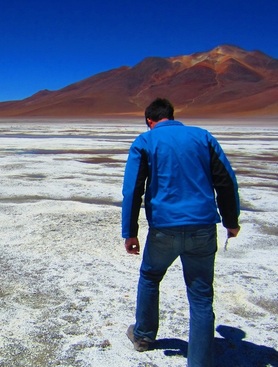| This past week, we took pause to honour the displaced peoples of the world during World Refugee Day. Bolivia, because of a plague of climate change, is home to thousands of internally displaced climate refugees. As the country is one of the most bio-diverse in the world, it is susceptible to many different forms of climate change. One of the most troubling changes is the loss of Bolivia's vast tropical glaciers. Normally, the glaciers melt slowly, soak into the earth, and fill up aquifers that provide irrigation and drinking water for millions. Higher than normal temperatures have been causing rain in the mountains |
When we first arrived in Bolivia in 2013, the glacier waters were matched by a rainy season of unexpected force. Tropical regions disappeared under rising flood waters and close to 60,000 people lost everything. With homes washed away and livestock and crops drowned, the population was split as some waited for the water to recede in order to piece their lives back together, while others fled to cities on higher ground.
Abnormal rains have also been detrimental to coffee growers as late and heavy rains knock the coffee cherries off their bushes. In recent years, an estimated 30% of coffee crops have been consistently lost due to these late rainstorms.
In other parts of the country, lack of water is the issue. This past year, Lago Poopó, one of Bolivia’s largest lakes has almost completely dried up. As the waters evaporated, ecosystems were destroyed, several species died out, and hundreds of local fishermen had to seek out new livelihoods in other areas. Likewise, due to low rainfall, other major lakes risk facing the same fate.
This drought, along with fluctuating temperatures and flash hail storms, has also had a significant impact on Bolivia's large subsistence farming community. Many of the rural families CBM works with say that because of the lack of rain, they have barely been able to grow enough food to get themselves through the winter and will have nothing left over to sell at market. With the persisting effects of climate change on these small communities, the countryside is dotted with abandoned farms. Defeated farmers are migrating to big cities like El Alto and urban poverty rates are rising as this population tries to find ways to earn a living in a world foreign to them.
On World Refugee Day, we are reminded of all those torn from their homes and think on ways we can reach out to this vulnerable population.

 RSS Feed
RSS Feed
